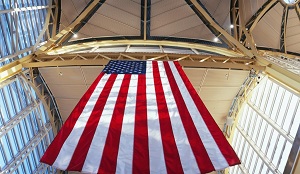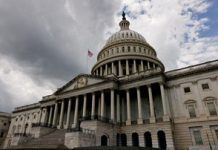The U.S. government has started asking some foreign travelers entering the country to voluntarily share their social media accounts, in an attempt to prevent terrorism. The request is specifically being given to those arriving on the visa waiver program, who are given the option to select social platforms, including Facebook, Instagram, Twitter, LinkedIn, YouTube, and Google+, and then enter their account names for each when going through the Electronic System for Travel Authorization process.
As Politico reports, the move has not been without controversy. Tech companies, including Facebook, Google, and Twitter, as well as consumer advocates, have criticized the new policy, citing privacy concerns, among other things. And while a spokeswoman for Customs and Border Protection said that the new measure is meant to “identify potential threats,” there are also concerns about how much of an “option” it will be for foreigner travelers entering the country who don’t want to share their social media information.
Opposition to the new policy began last June, when the government revealed its proposal to begin asking foreigners for their account information. In response, digital rights group Access Now submitted more than 2,000 comments from Internet users reacting to the policy to the U.S. Customs and Border Protection. “Our social media accounts are often highly personal. They’re full of inside jokes, political commentary, rants and raves, and cat videos. Or otter videos. Whatever gets you through the day. It’s really easy for people to take this information out of context or to misunderstand it,” said Amie Stepanovich, U.S. Policy Manager at Access Now.
“The choice to hand over this information is technically voluntary,” said Nathan White, the group’s Senior Legislative Manager. “But the process to enter the U.S. is confusing, and it’s likely that most visitors will fill out the card completely rather than risk additional questions from intimidating, uniformed officers — the same officers who will decide which of your jokes are funny and which ones make you a security risk.” In a similar response, the non-profit Center for Democracy & Technology (CDT)—which calls itself a “champion of global online civil liberties and human rights, driving policy outcomes that keep the Internet open, innovative, and free”—listed its concerns about the policy online. Among those concerns are “a significant expansion of intelligence activity,” as well as increased risks for foreigners, and the expense of social media analysis. There is specific concern for the impact on Arabs and Muslims entering the U.S








